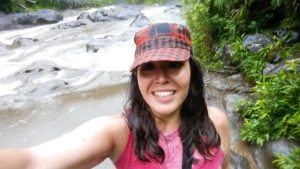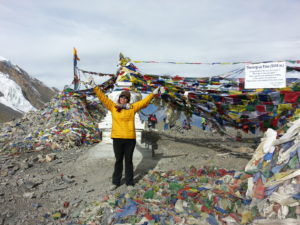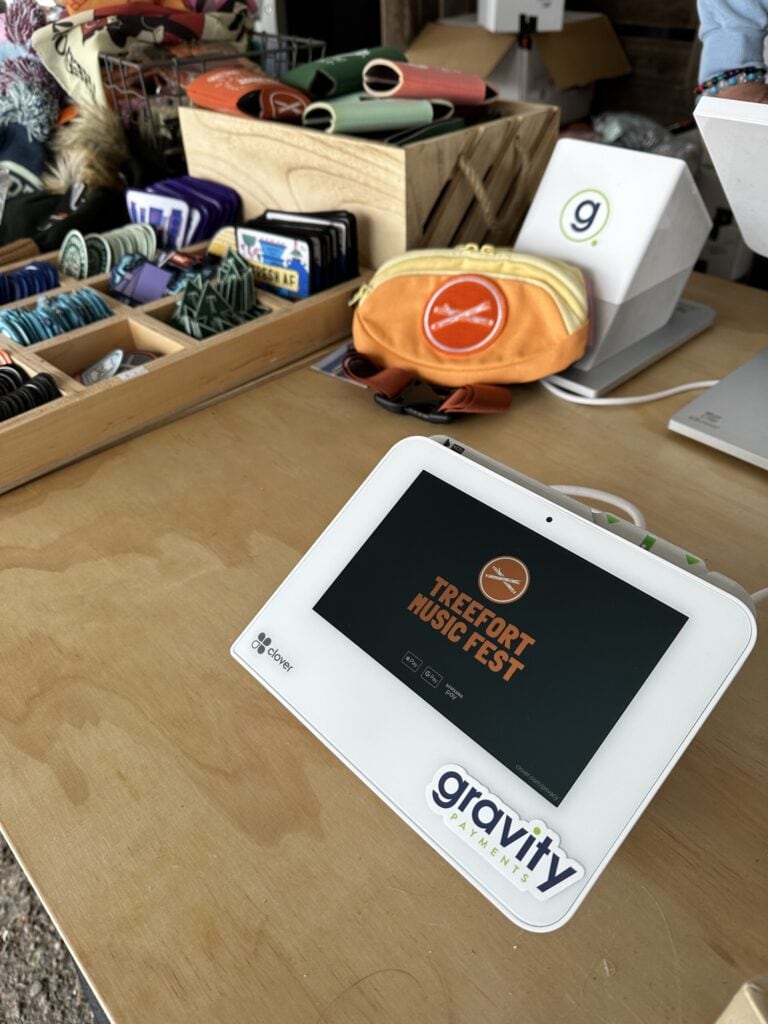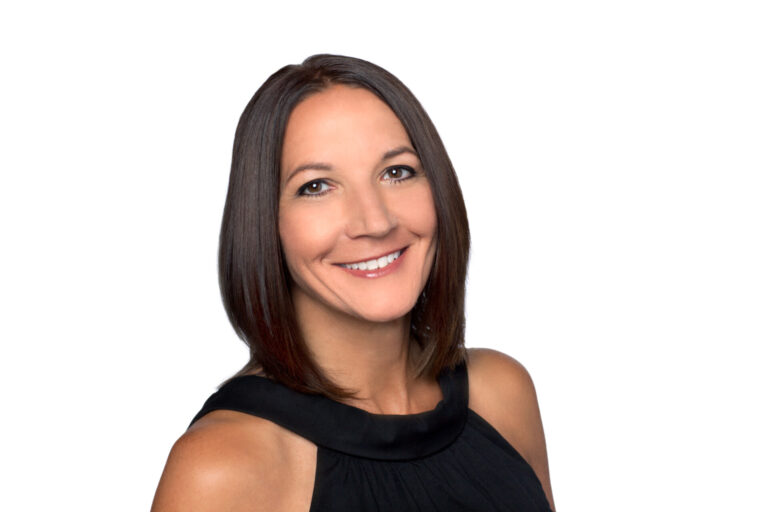“Life begins at the end of your comfort zone.” – Neale Donald Walsch
“I’m not sure what I would say.”
That was my response when my history teacher asked me to enter a state-wide essay contest about the Holocaust during my junior year of high school. “I’m not sure I have a place to speak on that topic.”
While this invitation was unique, my response to it was not. For as long as I could remember, it had been my habit to deflect attention, shy away from sharing my ideas, and generally turn into an anxious ball of silence when people looked my way. Growing up in a chaotic household, steeped in violence and instability, I learned quickly that it was easier–and often safer– to go unnoticed. If I didn’t say or do anything to draw attention to myself, I’d be okay.
What started as a survival technique grew into a deep insecurity and a self-limiting belief that I didn’t have much to say or offer the world. As my peers played sports, made friends, and tried things that would help shape them into the people they would eventually become, I slinked through my day-to-day experience on the margins.
Get the Gravity newsletter for the latest FAQs, tools, tips and tricks
So, naturally, when my teacher asked me to enter the essay contest, I demurred. Not only was the idea of sharing my thoughts with a panel of judges mortifying on its own, but the contest itself presented its own challenges. A local Jewish organization was sponsoring the event, and the writing prompt asked participants to compare teenage life today to teenage life during the Holocaust. As a half-Mexican, half-Portuguese, non-Jewish sixteen-year-old growing up in New Jersey, I couldn’t fathom what I could possibly write that was worth sharing on this subject. “Plus I’m not really a writer,” I told my teacher. “Thank you for thinking of me, but I can’t do it.”
He responded by turning the essay into a class assignment, which meant I had to participate. I couldn’t presume to understand living through such horror. I could only imagine how it felt to be ignored when you needed saving, to be subjected to terrible acts by those around you without them batting an eye. I did have my own experience of isolation and uninhibited violence in my household, so I did my best to draw from that. I turned in the assignment and forgot about it.
Four months later, my history teacher told me I had won the contest. My prize? I got to read my essay on stage at the local university to a room full of Holocaust survivors and their families as part of an event marking Holocaust Remembrance Day.
Great.
As someone who felt safer in the shadows, you can imagine my terror about being front and center under such circumstances. Sure, I had won the contest, but that didn’t mean these people were going to respond to what I had written.
I remember walking out on stage that night and feeling numb, my body shifting into survival mode. I looked out to the audience members, whose faces were obstructed because of the bright stage lighting. I gripped the sides of the podium, took a deep breath, and began to read.
After the ceremony, I rushed my mom out of the room as quickly as possible, desperate to get to the car and end the whole experience. We were almost out when someone tapped my shoulder. I turned and met the gaze of a woman in her seventies. “Thank you,” she said. Her eyes teared up. “Your words. They helped me–us–feel seen and heard. Thank you.” I was speechless. Before I could respond, other survivors came to introduce themselves and share similar sentiments.
To this day, those exchanges were some of the most humbling experiences of my life. Not only did they help me understand how powerful writing can be, they also made me realize that I didn’t have to hide in the shadows. I had a voice, and it had power.
***
A similar revelation came in college, when I was studying abroad in Mexico.

Hiking in Maui
“I don’t dance.” Anyone who knew me growing up would have heard me say that regularly. At every school dance, I’d stand to the side, avoiding the dance floor as if it were a puddle of hot lava. Being a wallflower was another survival technique, another way for me to remain hidden and therefore safe. Despite how lonely it was, I was certain it was the only option I had.
I continued this refrain when I arrived in Mexico, a place where dancing is a way of life and clubs don’t close until the last person leaves the dance floor. I had gone to Mexico to try and connect with the heritage I inherited from my father, who was born and raised there, but learning to dance was never on my itinerary.
Even though my roommates consistently tried to convince me to come out with them, I kept making the same excuse. “I don’t dance,” I told them. “Have fun without me.” One night, a friend finally guilted me into joining her at the local salsa club for her birthday. “You have to come,” she said. I relented, though I still had no intention of actually dancing.
We found a table, and I volunteered to stay with our things while others hit the floor. I wasn’t sitting long when a stranger invited me to dance. “I don’t dance,” I yelled over the music. He asked again. “I have to watch our stuff,” I explained, motioning to a pile of purses. He either didn’t care or didn’t hear me because he grabbed my hand and pulled me onto the floor.
Not only was I mortified of dancing in general, but I didn’t know anything about salsa. In the few seconds it took us to reach the floor, I felt the familiar anxiety and self-doubt creep in. But then something happened. As soon as I started dancing, any self-consciousness I had went out the window. I got the hang of the basic step, and I stumbled upon a natural adrenaline and joy that brings a smile to my face to this day. My mind cleared, and my body took over, connecting innately to the music. Time stood still and flew by all at once. What felt like the blink of an eye turned out to be hours. I stayed on the dance floor until 4 am.
For the second time in my life, my limiting self-perception had been turned on its head through an experience I had tried to avoid. By stepping outside of my comfort zone, I learned that not only is it safe to put yourself out there and be seen, it can be a whole lot of fun, too.

Trekking in Nepal
Today, writing and dancing are two of my favorite things to do. But the experience of discovering these passions helped me discover something even more important. We often tell ourselves stories about who we are, what we’re capable of, and what drives our personalities. Or we let others tell us, without questioning their perspective. But when we step outside of our comfort zones, we learn that we are so much more.
Since learning this, I have become determined to push myself into new situations, especially when I notice my self-doubt pop up. That push has taken me on adventures across the world–from Himalayan mountain treks to bamboo forest hikes to European road trips and beyond.
It’s in the space beyond my comfort zone where I’ve learned the most about who I am. And it’s in that space that I’ve discovered, and hope to continue discovering, parts of myself I never would have thought existed. When I speak up or share a story now, it’s because I know all too well the burden of staying silent and the power that comes in sharing my voice. And when I dance, I do so to celebrate the person I’ve become and to rejoice in having found my way out of the frozen stillness of fear.
by Jenn Carreto, Business Analyst
Humans of Gravity is a profile series designed to highlight the unique individuals who comprise our team. Gravity Payments believes in celebrating our shared humanity by letting employees bring their full selves to work. Interested in joining this amazing group of people? Check out our Careers page for the latest opportunities.



